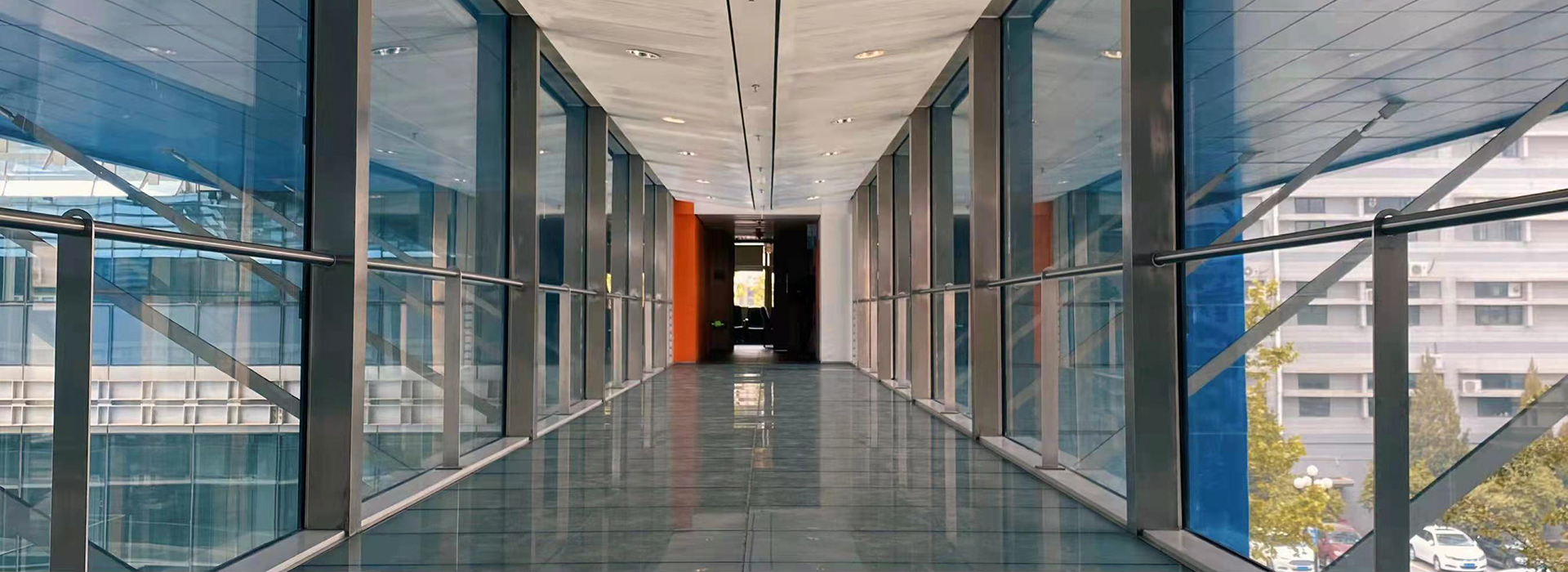Tsinghua University/Basel Convention Regional Centre for Asia and the Pacific (BCRC China) and Cambodia’s Ministry of Environment jointly held a successful bilateral meeting online on July 20th to promote the cooperation on the International City Network of Zero-waste Initiative. The meeting was attended by 19 Cambodian government officials including Heng Nararith, Deputy Minister of Environment; Dy Kiden, General Directorate of Environmental Protection, Ministry of Environment; Dyakanal Sophal, Head of Hazardous Waste Management Department, General Department of Environmental Protection; Chandath Hay, Deputy Head of Air Quality and Sound Management Department. Li Jinhui, Executive Director of the BCRC China and Professor at Tsinghua University’s School of Environment; Zhao Nana, Assistant Director of the BCRC China; Craig Boljkovac, Senior Advisor; Shan Guijuan, Deputy Head of the Environmental Technology Unit; Chen Yuan, Head of the Regional Chemicals Unit; and project assistants Liang Ju, Wang He, and Shen Qimeng were also in attendance. Craig Boljkovac hosted the meeting.
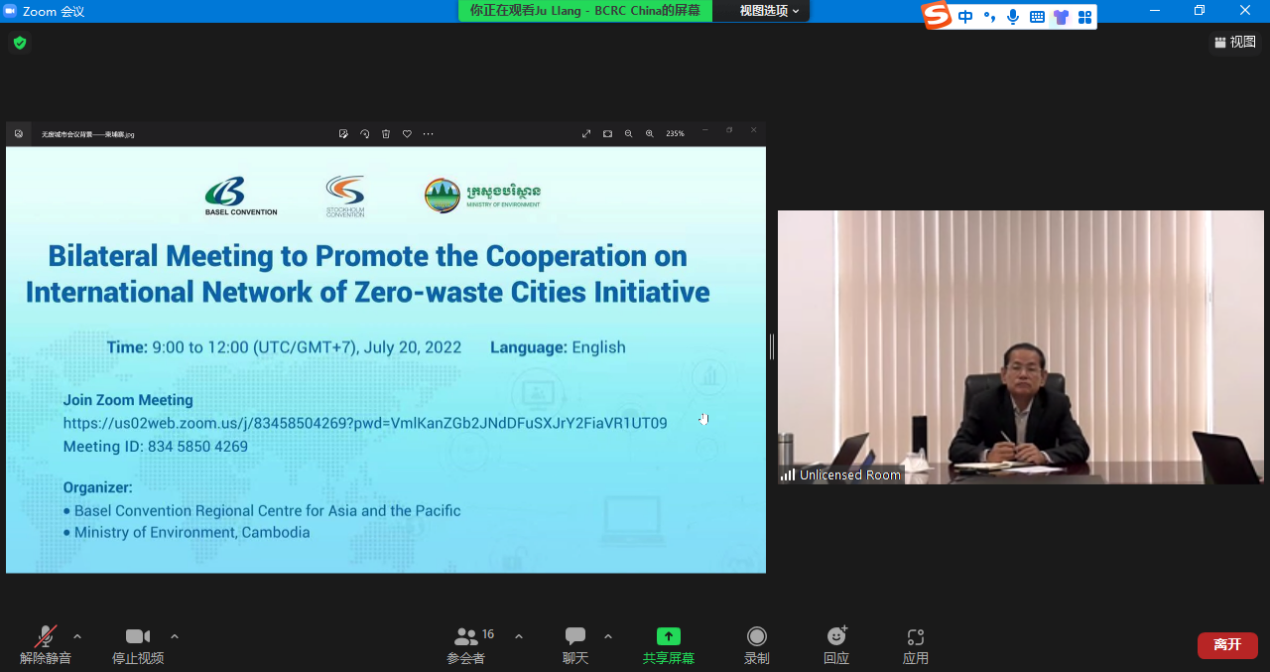
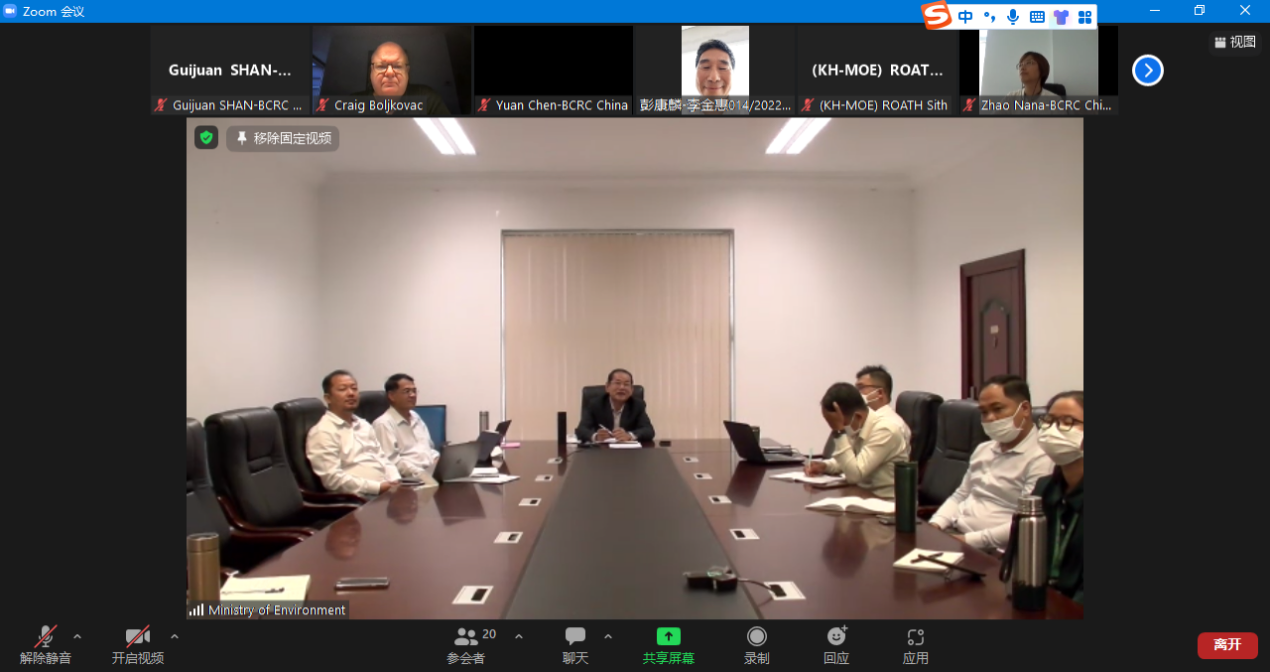
Attendees
During the meeting, Heng Nararith mentioned that he participated in the side event on “Building Zero-Waste Cities: From Concept to Practice” held by the BCRC China at the 2022 Triple COPs meeting on June 15th. He expressed his strong desire for Cambodian cities to join the International City Network of Zero-waste Initiatives and work together with China to promote the international process of building zero-waste cities. Zhao Nana also expressed her gratitude to the Cambodian Ministry of Environment for attending the conference and expressed her willingness to deepen regional cooperation on zero-waste cities and chemical management between Cambodia and the BCRC China through this meeting.
During the report session, Shan Guijuan introduced the achievements of China’s Zero-waste City construction, the plan for promoting Zero-waste City construction during the 14th Five-Year Plan period, and the pilot construction plan developed by the BCRC China in the field of Zero-waste City construction, as well as the technical support work they provided to the pilot construction and the scientific research results achieved by the team. Dy Kiden delivered a report entitled “Overview on Municipal Solid Waste Management in Cambodia”, and introduced the challenges faced by Cambodia in solid waste management and inquired about the challenges faced by China in implementing the Zero-waste City plan and the level of public participation, in the hope of finding a reference for Cambodia to promote Zero-waste City construction. Subsequently, the two sides had a thorough discussion on the ideas and possibilities of project cooperation under the International City Network of Zero-waste Initiative.
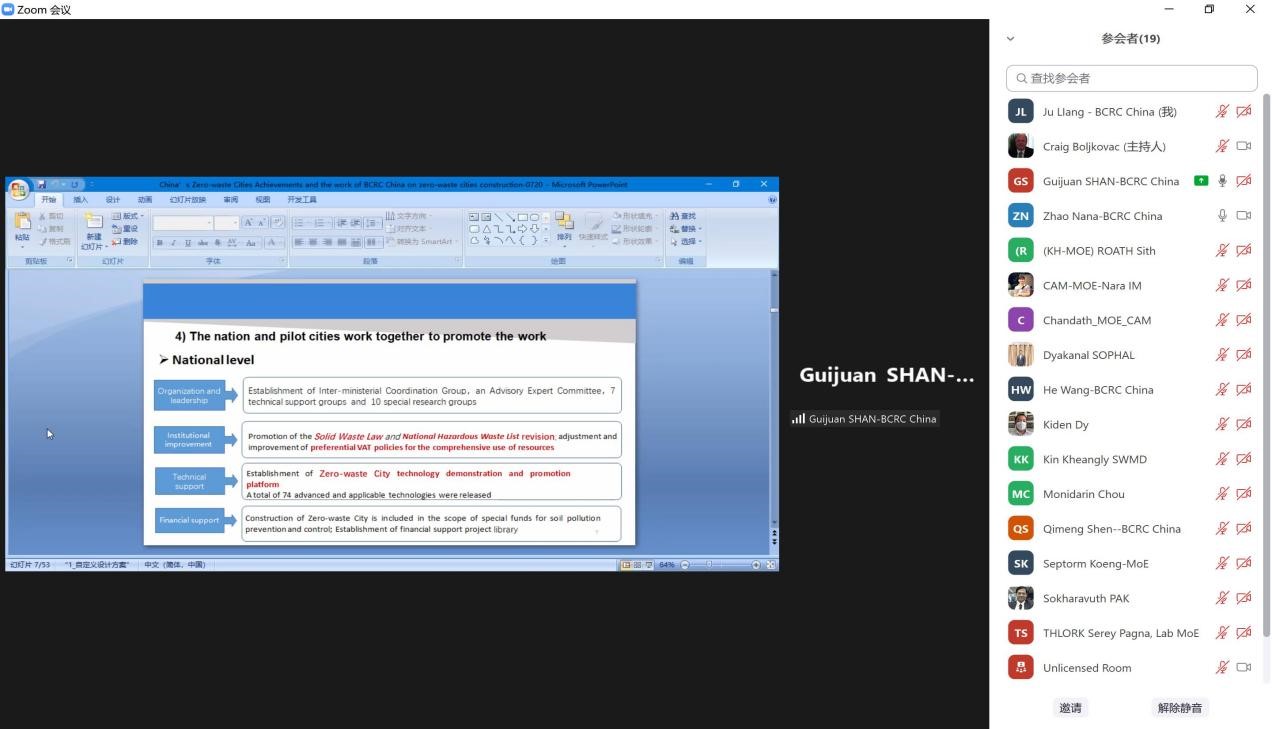
Shan Guijuan introducing China’s Zero-waste City construction
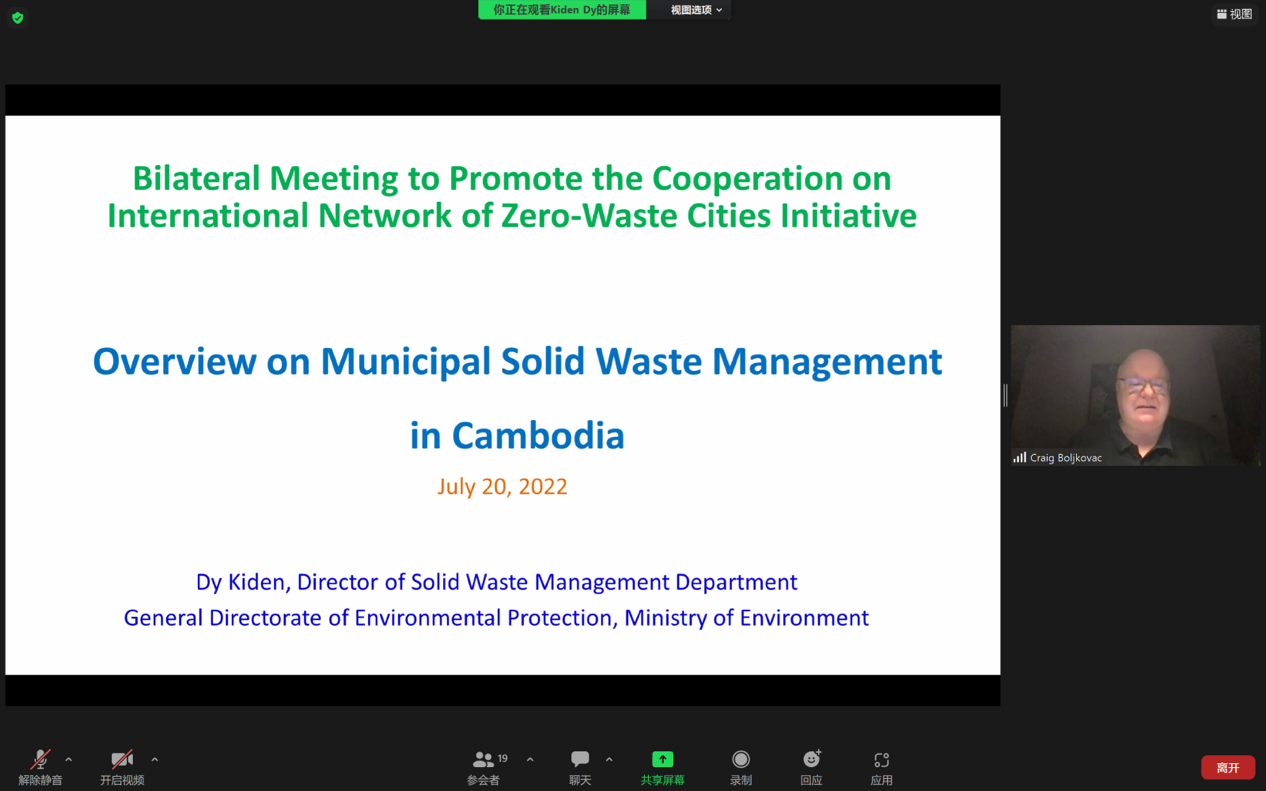
Dy Kiden delivering the report entitled “Overview on Municipal Solid Waste Management in Cambodia”
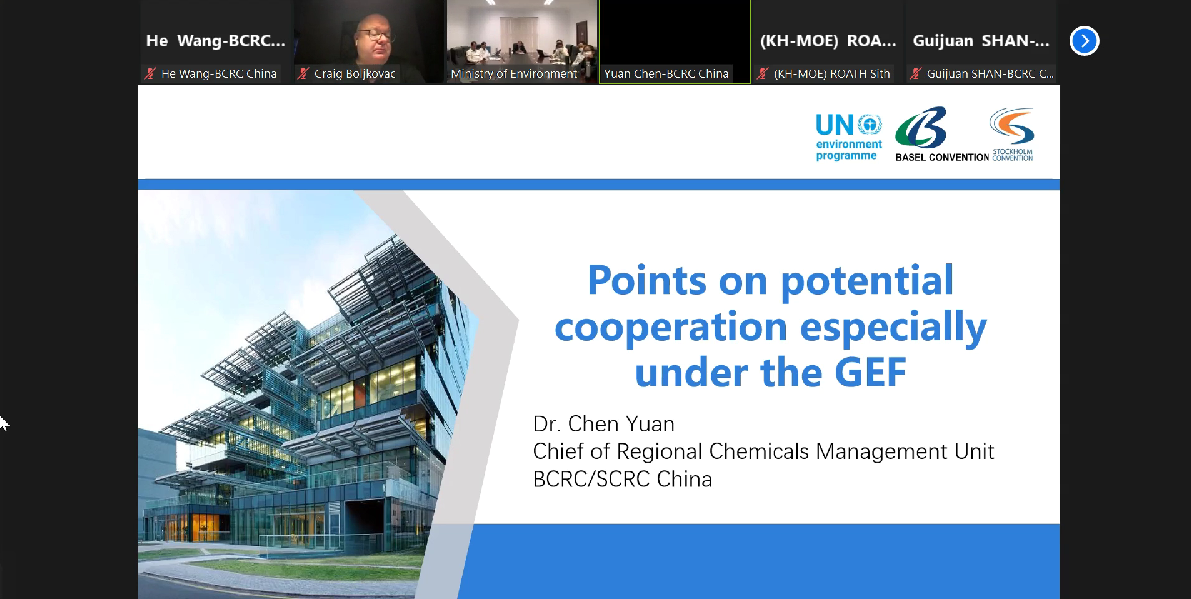
Chen Yuan introducing the Global Environment Facility project
Afterwards, Chen Yuan introduced BCRC China’s Global Environment Facility (GEF) project and exchanged views on potential cooperation with Cambodia in chemicals management under the GEF.

Li Jinhui making the concluding statement
Finally, Professor Li Jinhui gave a summary speech at the meeting. He stated that the BCRC China is willing to cooperate with Cambodia in regional projects, as well as collaborate with United Nations agencies such as the United Nations Environment Programme to jointly design and apply for projects to help Cambodia improve its management capabilities for solid waste and chemicals. He pointed out that Zero-waste City construction is important not only for solid waste management but also for promoting green urban development. The concept of Zero-waste City construction has gained consensus internationally, and Member States’ implementation of Zero-waste City practices was praised in Resolution 4/7 on “Environmentally sound management of waste” at the fourth session of the United Nations Environment Assembly. The current situation is a good opportunity for Cambodia and China to jointly promote the construction of Zero-waste City, and he welcomed Cambodian cities to join the International City Network of Zero-waste Initiatives. Both parties could sign a memorandum of understanding to promote cooperation in the field of Zero-waste City construction and under the Stockholm Convention, and to exchange and cooperate in the future to address the Plastic Convention. At the same time, the BCRC China was also willing to assist in deepening the cooperation between the Cambodian Ministry of Environment and the Chinese Ministry of Ecology and Environment. He hoped that both sides would have more experience exchanges in the field of Zero-waste City in the future.
The meeting demonstrated China’s progress and achievements in Zero-waste City construction, promoted experience exchange between China and Cambodia in the field of Zero-waste City construction, and laid the foundation for regional cooperation between the two sides.
Contributed by: Basel Convention Regional Centre for Asia and the Pacific



